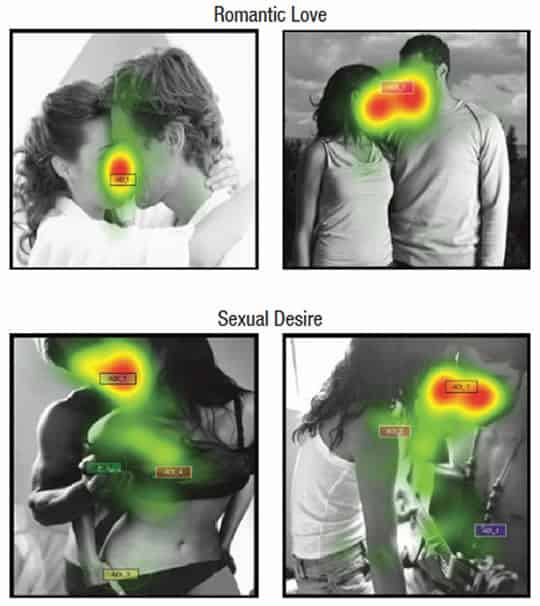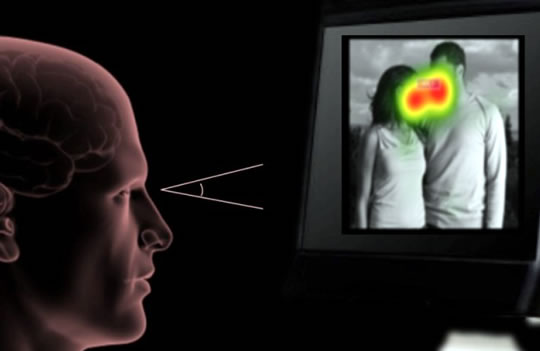How to spot the signs of lust in the eyes.
When a stranger looks into your eyes, it could signal romantic love, but if their eyes then slide down your body, they’re probably feeling sexual desire, a study finds.
This automatic judgement can happen in as little as half a second and likely recruits different networks of activity in the brain.
Stephanie Cacioppo, who led the study, which is published in the journal Psychological Science, said:
“Although little is currently known about the science of love at first sight or how people fall in love, these patterns of response provide the first clues regarding how automatic attentional processes, such as eye gaze, may differentiate feelings of love from feelings of desire toward strangers.”
In the study, men and women looked at photographs of strangers and indicated as quickly as possible whether they were feeling romantic love or sexual desire (Bolmont et al., 2014).
Some were pictures of couples, others of a single person of the opposite sex.
At the same time, eye-tracking equipment followed where they looked in the photographs.
By putting these two pieces of information together, the researchers found that people tended to be looking at the face first, and that’s where the eyes rested when thinking about romantic love.
But, when participants felt sexual desire, their gaze quickly shifted down the body.
Here are the ‘heat maps’ which show where people were looking:

When people felt sexual desire, their gaze mainly focused on the faces at first, but the green area below shows their gaze moving southwards.
Love and sexual desire are surprisingly separate processes in both the brain and in people’s lived experience:
“Love is not a prerequisite for sexual desire, and sexual desire does not necessarily lead to love. Love and lust can exist by themselves or in combination, and to any degree.
In one study of 500 individuals conducted in the mid-1960s by Tennov (1999), 61% of the women and 35% of the men agreed with the statement, “I have been in love without feeling any need for sex,” and 53% of the women and 79% of the men agreed with the statement, “I have been sexually attracted without feeling the slightest trace of love.””
Image credits: Stephanie Cacioppo & Bolmont et al.

